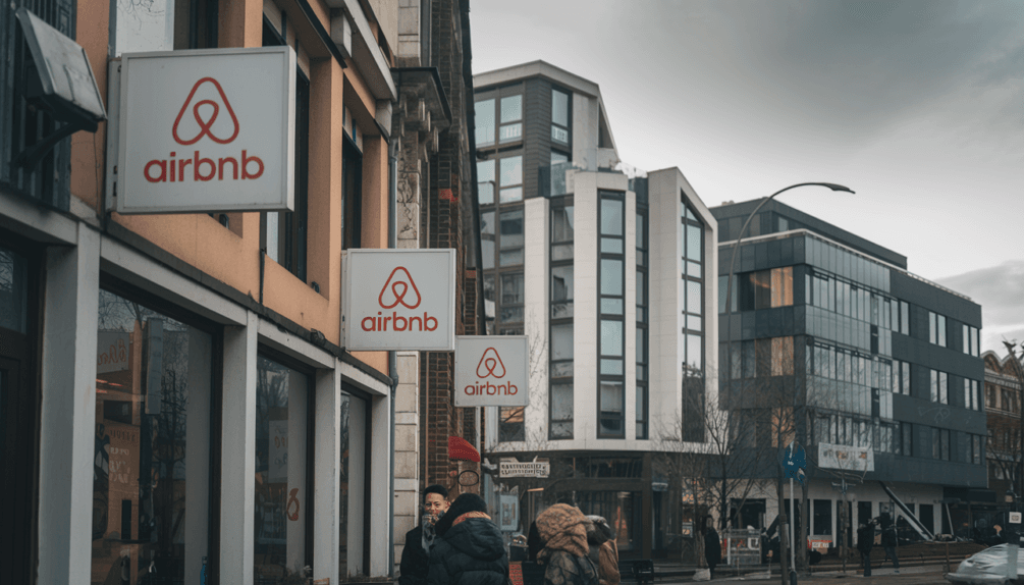The Rise of the ‘Travel-Industrial’ Complex: How Airbnb is Changing the Way We Explore the World
The world of travel has undergone a significant transformation in recent years, and it’s nowhere more evident than in the rise of the “travel-industrial complex.” This phenomenon is centered around the dominance of platforms like Airbnb, which have revolutionized the way we explore the world.
In the pre-Airbnb era, the traditional hotel industry was the mainstay of the travel market. Hotel chains like Marriott, Hilton, and InterContinental Hotel Group were the go-to options for travelers looking to stay in a comfortable and reliable environment. However, with the advent of Airbnb, the landscape has changed dramatically.
Launched in 2008, Airbnb has disrupted the hospitality industry by allowing homeowners and property managers to rent out their properties to travelers. This has created a vast and diverse range of accommodation options, from cozy apartments in city centers to luxurious villas in exotic locations.
How Airbnb Travel Trends Are Reshaping Global Tourism and Exploration
The impact of Airbnb has been nothing short of seismic. According to a report by Skift, a leading travel industry research firm, the number of nights booked on Airbnb increased by 40% just between 2016 and 2017 alone. Today, Airbnb is estimated to be worth over $50 billion, making it one of the largest travel companies in the world.
So, how has Airbnb changed the way we explore the world?
The Rise of the Local Experience
One of the most significant effects of the Airbnb phenomenon is the focus on local experiences. Gone are the days of cookie-cutter hotel buffets and cramped, soulless chain restaurants. With Airbnb, travelers can immerse themselves in the local culture by staying in homes, apartments, or villas that offer a unique and authentic experience.
From cooking classes in a local chef’s home to wine tastings in a private cellar, Airbnb has made it possible for travelers to experience the best of a destination’s hidden gems. This has not only led to a more meaningful and memorable travel experience but has also helped to stimulate local economies and preserve cultural heritage.
The Shift towards Home Sharing
Another significant impact of Airbnb is the shift towards home sharing. As travelers increasingly opt for short-term rentals, the traditional hotel industry is facing a significant challenge. According to a report by the World Travel & Tourism Council, the number of hotel stays has actually decreased by 1.4% between 2015 and 2017, while the number of nights booked on Airbnb has increased by 25% over the same period.
This shift towards home sharing is driven by the desire for more space, flexibility, and a sense of community. Whether it’s a family traveling with kids or a group of friends looking for a unique getaway, Airbnb has provided a solution that meets these needs.
The Downsides of the Travel-Industrial Complex
While Airbnb has without a doubt disrupted the travel industry for the better, it’s not without its downsides. Some of the concerns include:
-
-
Regulatory challenges:
As Airbnb has grown, so have concerns about the lack of regulation and oversight. Many cities and governments are struggling to cope with the unregulated onslaught of short-term rentals, leading to concerns about rental availability, noise, and property values.
-
-
-
Displacement of locals:
The rise of Airbnb has led to concerns that long-term renters are being pushed out of their homes, as high demand from tourists drives up prices and forces many to move to the periphery of the city.
-
-
-
Monopolization of the market:
As Airbnb continues to grow, there are concerns that it may become a monopolistic force in the industry, stifling competition and innovation.
-
The Future of the Travel-Industrial Complex
As the travel industry continues to evolve, it’s clear that the rise of Airbnb is here to stay. While some of the downsides will continue to be worked through, the platform has undoubtedly opened up new possibilities for travelers and property owners alike.
To stay ahead of the curve, traditional hotels and resorts are investing in their own short-term rental offerings, while startups are emerging to cater to the growing demand for unique and authentic experiences.
As the travel-industrial complex continues to evolve, it’s clear that the future of travel will be shaped by the rise of Airbnb and its peers. Whether you’re a seasoned traveler or a homeowner looking to monetize your property, one thing is certain: the world of travel will never be the same again.



